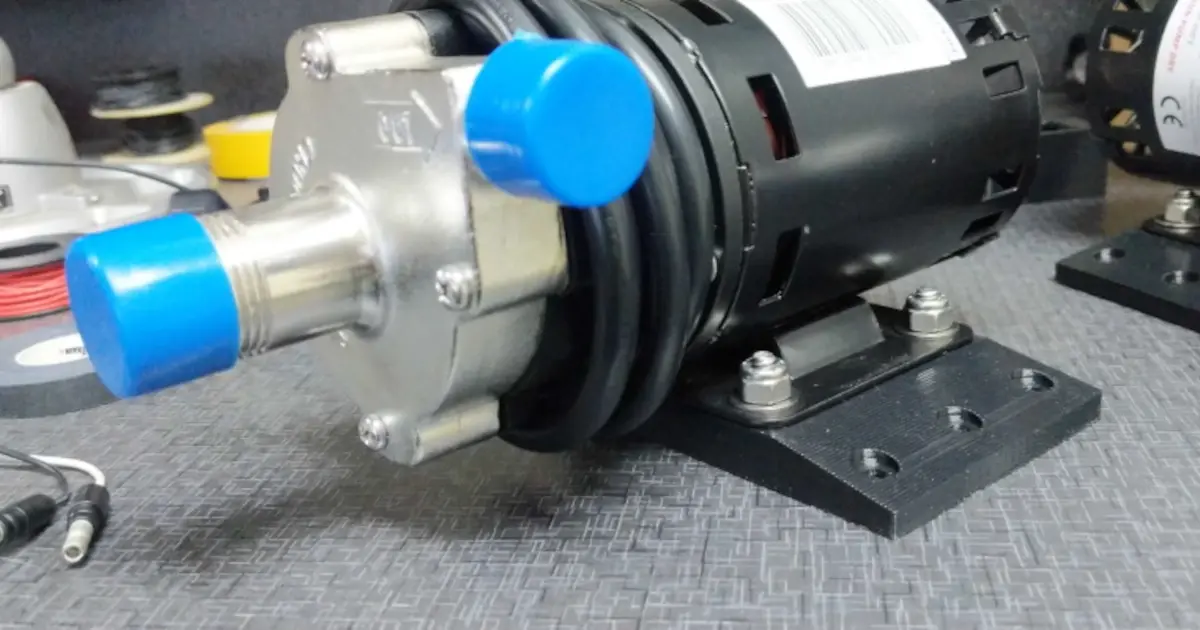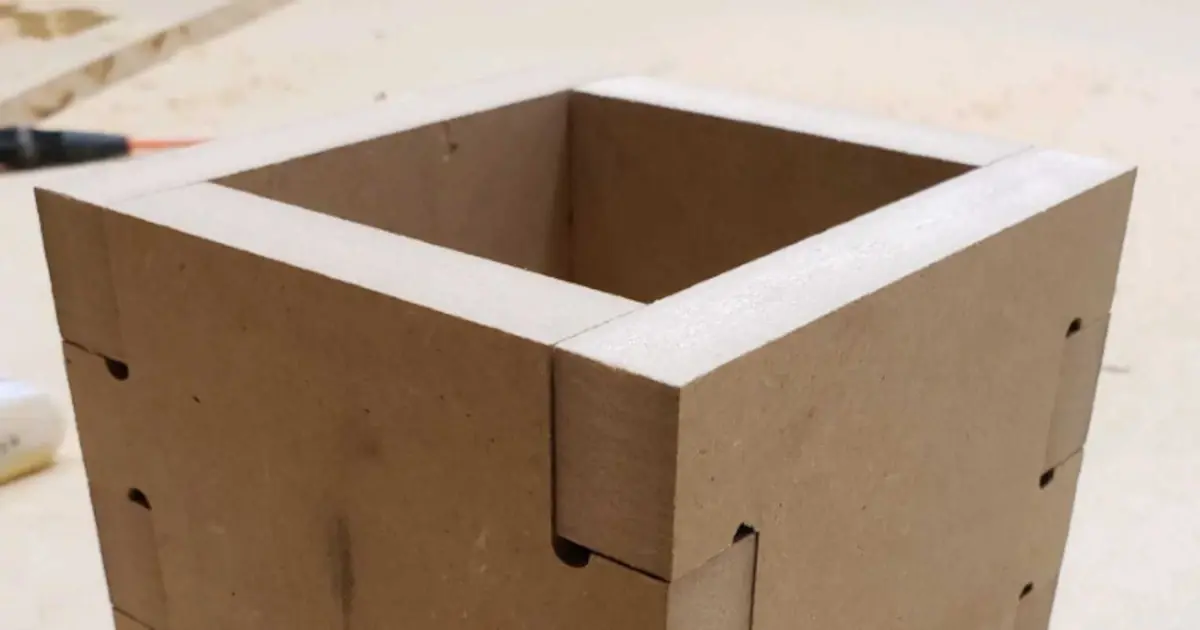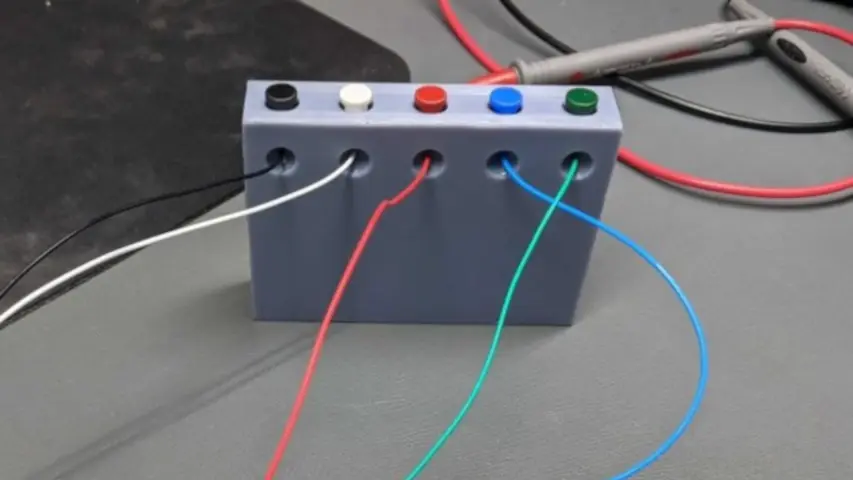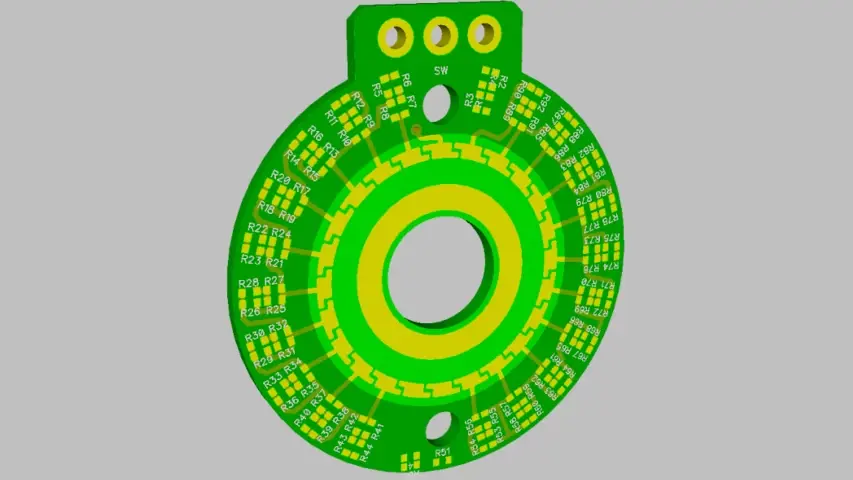Related Topics
Virtual Earth Mixers
Datasheets are usually an engineer's friend. However, Stephen finds that his rotary switch's datasheets do not match the physical device.
Like Old Cheese
What separates good documentation from bad and which kind of application notes do you like? Also, Ancient Chinese Semiconductor 7-segment drivers!
Other Resources
Circuit Break Podcast
Webinars
Videos
Tour MacroFab's ITAR-Compliant Facility
May 19, 2021, Episode #277
- Tasty Chips segment
- Update – E-Z Hook Insulation Piercing Wire Clamp – 8507
- Built a housing to isolate the wire clamps
- COM port snooper / sniffer?
- Ended up using ‘Free Serial Analyzer‘
- Automating Testing Clock Drift
- Using an oscilloscope?
- SCPI or some other method?
- 115 pages of commands
- What is inside a scope probe? 10X?
- Rotary switch pcb – interesting bug?
- Pcb is 99% done – currently reviewing
- MF platform experience
- Analogeng Github
- 49 unique resistor values 92 total resistors
- List of most used resistors
- Potentially bad bug in Diptrace
- Causes lots of headaches
- Injection Molded Actuators
- They work great
- Shrinkage – Identifying and dealing with it
- Voids – problematic for light passage
About the Hosts

Parker Dillmann
Parker is an Electrical Engineer with backgrounds in Embedded System Design and Digital Signal Processing. He got his start in 2005 by hacking Nintendo consoles into portable gaming units. The following year he designed and produced an Atari 2600 video mod to allow the Atari to display a crisp, RF fuzz free picture on newer TVs. Over a thousand Atari video mods where produced by Parker from 2006 to 2011 and the mod is still made by other enthusiasts in the Atari community.
In 2006, Parker enrolled at The University of Texas at Austin as a Petroleum Engineer. After realizing electronics was his passion he switched majors in 2007 to Electrical and Computer Engineering. Following his previous background in making the Atari 2600 video mod, Parker decided to take more board layout classes and circuit design classes. Other areas of study include robotics, microcontroller theory and design, FPGA development with VHDL and Verilog, and image and signal processing with DSPs. In 2010, Parker won a Ti sponsored Launchpad programming and design contest that was held by the IEEE CS chapter at the University. Parker graduated with a BS in Electrical and Computer Engineering in the Spring of 2012.
In the Summer of 2012, Parker was hired on as an Electrical Engineer at Dynamic Perception to design and prototype new electronic products. Here, Parker learned about full product development cycles and honed his board layout skills. Seeing the difficulties in managing operations and FCC/CE compliance testing, Parker thought there had to be a better way for small electronic companies to get their product out in customer's hands.
Parker also runs the blog, longhornengineer.com, where he posts his personal projects, technical guides, and appnotes about board layout design and components.

Stephen Kraig
Stephen Kraig is a component engineer working in the aerospace industry. He has applied his electrical engineering knowledge in a variety of contexts previously, including oil and gas, contract manufacturing, audio electronic repair, and synthesizer design. A graduate of Texas A&M, Stephen has lived his adult life in the Houston, TX, and Denver, CO, areas.
Stephen has never said no to a project. From building guitar amps (starting when he was 17) to designing and building his own CNC table to fine-tuning the mineral composition of the water he uses to brew beer, he thrives on testing, experimentation, and problem-solving. Tune into the podcast to learn more about the wacky stuff Stephen gets up to.
Special thanks to whixr over at Tymkrs for the intro and outro!
Related Podcasts

Like Old Cheese
What separates good documentation from bad and which kind of application notes do you like? Also, Ancient Chinese Semiconductor 7-segment drivers!

Virtual Earth Mixers
Datasheets are usually an engineer's friend. However, Stephen finds that his rotary switch's datasheets do not match the physical device.
About MacroFab
MacroFab offers comprehensive manufacturing solutions, from your smallest prototyping orders to your largest production needs. Our factory network locations are strategically located across North America, ensuring that we have the flexibility to provide capacity when and where you need it most.
Experience the future of EMS manufacturing with our state-of-the-art technology platform and cutting-edge digital supply chain solutions. At MacroFab, we ensure that your electronics are produced faster, more efficiently, and with fewer logistic problems than ever before.
Take advantage of AI-enabled sourcing opportunities and employ expert teams who are connected through a user-friendly technology platform. Discover how streamlined electronics manufacturing can benefit your business by contacting us today.

